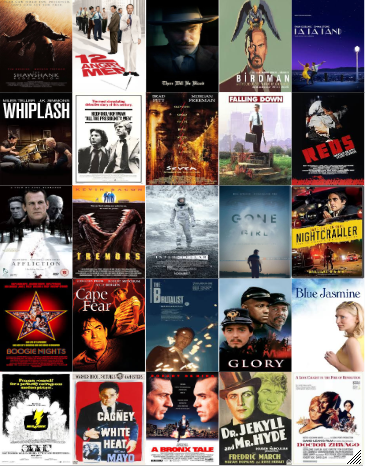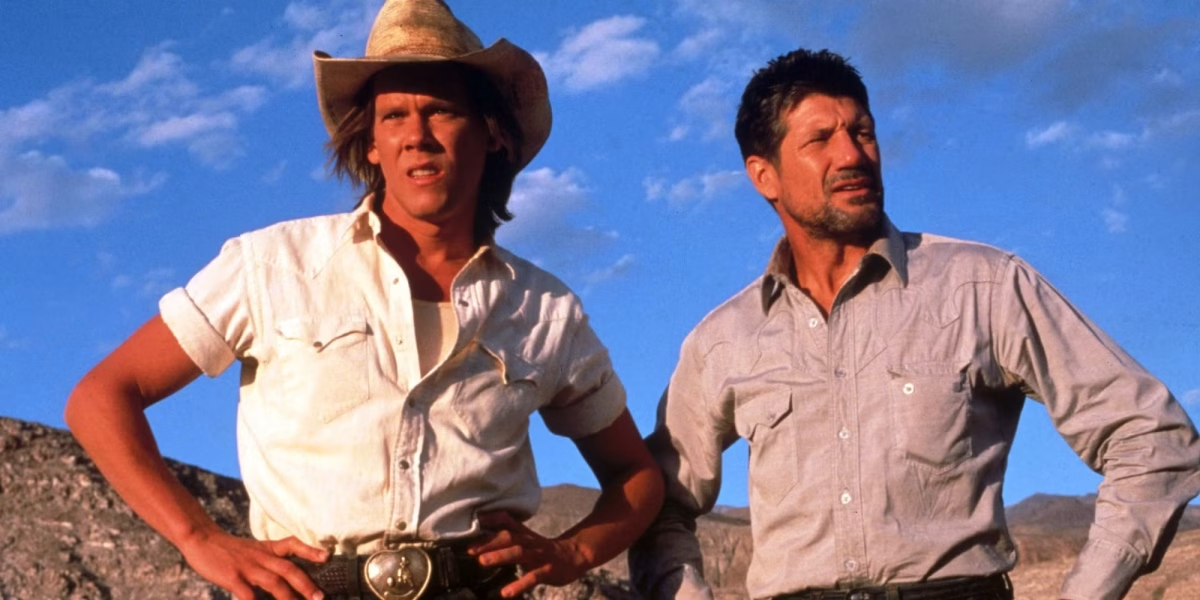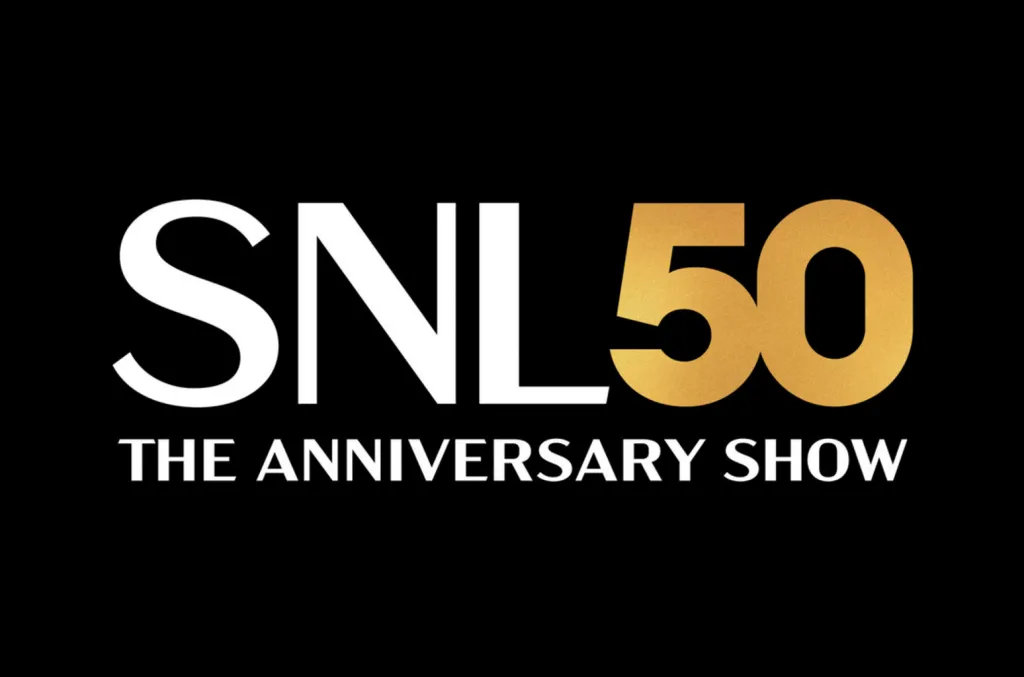Full disclosure, this one is for a class.
However this is a film that I have wanted to talk about for a long time. The problem has been that for the life of me I could not land on a centralized theme in which I wanted to discuss this film. With past reviews this has not been an issue, but I felt like for a film like this. One that is so deeply rooted in social commentary, it was important to maintain a somewhat specific focus.
My sociology class has helped provide me with that theme for me to work around.
Alright, enough prefaces, let’s get into it.
Joel Schumacher was certainly an interesting director.
Our parents might best know him for his films Lost Boys and St. Elmo’s Fire. Others might remember him for his gripping thrillers like A Time to Kill and Phone Booth.
However most will likely remember him as a C-list director who made more bad movies than good. As well as the man who created the “Bat-Credit card” and put visible nipples on the Batman suit. People like to consider him “the man who ruined Batman” because after the release of the 1997 movie Batman & Robin the series remained theatrically dormant for nearly a decade.
While this assessment of his career isn’t exactly wrong, it is incredibly reductive.
Schumacher had a lot of misses during his time in Hollywood, there’s no denying that. However I will argue that his hits, as few as they may have been, were great enough to even out his career and place him in the dead center on that ever dwindling line between true fame and ironic infamy.
One film more than any of his others firmly anchors him onto that line.
It’s a film about societal expectations and standards. A tension ridden story filled with violence and brutality. A story that is undercut with a sense of detachment and self pity that infects every solitary moment. Every director has their masterpiece, and Joel Schumakers is the 1993 film Falling Down.
Now usually I’d go scene by scene (or just about) and break down exactly why I love this move, and believe me I do. However, in this case, I’m going to do things kind of differently.
Instead I want to try and do an in depth analysis of this movie’s themes and messaging in accordance with the sociological perspective of “Functionalism”. Functionalism is basically the idea that “each aspect of society depends on each other and each contributes to the overall stability and functioning of that society” as described in an article by ThoughtCo. Without each institution working in perfect tandem with all the other’s, the structure of our society will begin to crumble.
Falling Down seeks to tell a story where someone shakes our society’s foundation by defying his role in the system and fighting back against what he considers to be unfair circumstances.
Set on the hottest day of the year, we begin in everyone’s favorite place to be. Completely gridlocked and stuck in the roads of Los Angeles. Our protagonist William “D-Fens” Foster (the “D-Fens” comes from his now iconic license plate) does something you’re not supposed to do, he steps out of his car. This action is immediately met with furious strings of beratement from the surrounding drivers.
By exiting his car and leaving it in the street, Foster is, even if unintentionally, creating social upheaval. Traffic sucks. Everyone knows this but it’s something that we have to deal with in order to keep things running smoothly. However Foster does not subscribe to this unwritten rule, he doesn’t want to sit in traffic anymore so to him he doesn’t have to. Instead of thinking for the good of the collective, Foster thinks only for himself. This selfishness has both seen and unseen consequences on the people of Los Angeles. In terms of what is not seen, the fact that Foster’s car has been abandoned in the road will cause even more traffic. This is because the people in his lane won’t be able to drive forward because if they do they’ll run into his car. They can’t get around it because all of the adjacent lanes are also completely clogged up. So that lane could end up being backed up for miles with no way to clear it out.
An action as simple as getting out of his car is the first of many things Foster does to challenge the system and fundamentally shake the stability of the society and people around him.
His next stop is at a low end convenience store where all he wants to do is buy a singular can of Coke. However a problem arises when he gets charged 85 cents for it (geez) instead of the usual 50. Foster flips out at the store owner calling him a thief and after wrestling a bat from his grip begins to take his anger out on all the displays for products that he considers to be overpriced. This display comes as a shock to both the audience and the owner because this is not the type of behavior that has been deemed “acceptable.”
In our society there is an expectation for people to just “deal” with things. Deal with rising prices, deal with unfair circumstances, deal with change that you have absolutely no control over. We’re expected to deal with these things because if we dont everything is affected. If we don’t accept inflation and lash out like how Foster does, we are effectively pushing against the powers that be and the authority of ones above us. Things are only able to function in the way that they do if we remain complacent with the changes that are thrusted upon us.
This idea is at the core of the functionalist perspective, the way relationship dynamics between classes affect the functionality of society. Specifically the idea of how one group has power over another, how they achieve the necessary means to consolidate that power, and how it is used to manipulate the will of those below in order to propagate the system. However the ones at the top are not infallible. All of their power comes from the people below them and their willingness to give that power to them. If the ones below think that they are being treated unfairly and believe that the system needs to be dismantled, there is nothing the top can do to stop them.
So the fact that Foster so casually acts in defiance to what he considers to be injustices makes him a threat.
However to Foster, what he’s doing aren’t acts of defiance. Rather he thinks what he is doing is completely justified and it’s the rest of the world who are the ones in the wrong. This not only says a lot about his character but how people like him think. Disrupters, especially those as innocuous as Foster, tend to not see themselves as disruptors or freedom fighters or anything of the sort. They consider themselves to be doing the most “normal” thing in the situation by trying to benefit themselves. That’s another thing, Foster isn’t trying to help society, he’s trying to help himself. He stepped out of his car because HE didn’t want to wait anymore. He destroyed the store because HE didn’t want to pay the extra 35 cents (even typing that is crazy).
Despite these selfish reasons behind what he does he’s the only one that DOESN’T feel the effects of his actions. After the incident in the store Foster gets into an encounter with a couple of Spanish gangsters. His refusal to bend to their will and willingness to fight back puts a target onto his back. This gets “paid off” in a scene later on into the movie. Foster is standing completely out in the open at a payphone. The gangsters, who have now brought reinforcements, see him and attempt a drive-by shooting.
Now I don’t know if it’s by the grace of God or for the amusement of the Devil but somehow Foster makes it out without even a scratch. The same can not be said for the people around him, many of whom meet a painful end, bleeding out from their bullet wounds. The gangsters themselves don’t even manage to get away unscathed as they accidentally crash their car leaving them either dead or gravely wounded. There could be many reasons why they decided to write this in the way that they did. However I think the most interesting is the idea that the writer is trying to create a commentary about our society.
Let me explain.
So as I previously stated Foster’s actions overall end up doing a whole lot more harm than they do good. Now realistically he would have been shot and killed during the drive-by, I think everybody knows that. To me however the fact that he wasn’t at all hit is a way for the writers to make a statement about our society. By not having Foster at all feel the repercussions of his actions the film is effectively making reference to real life individuals who do the same. People like; billionaires, oil barons, politicians and political grifters have nothing but a negative effect on our society. Their greed and the actions they take to satisfy their own self interest will in some ways lead to the destruction of our society as we know it. However, these people will never see any sort of repercussions for all of the heinous things that they do because they have the influence to make it all effectively “go away”.
While Foster doesn’t quite have the same level of influence as the above parties, what he does throughout the movie still has an effect on the lives of many people. By having not one bullet hit him as dozens of people get mowed down around him the film makes reference to the social infallibility of the real-life upper class. Although Foster belongs to the lower class and takes actions in order to try to upend those above him, he still acts for purely selfish reasons. It’s his pursuit for his own self interests that eventually get people killed. So in a sense his character is written to be both the person who starts the conflict as well as the reason the conflict gets started.
Foster is a complicated character by design in ways that I don’t have time to get into here. If it hadn’t been for a damn-near career best performance by Micheal Douglas, I don’t think the filmmakers would have been able to communicate what they wanted to as effectively.
Joel Schumaker’s Falling Down creates commentary on contemporary American society by examining it through the functionalist perspective. It accomplishes this through its main character William “D-Fens” Foster as he goes on what is essentially a rampage throughout Los Angeles. The actions he takes during this rampage shake up the system as a whole. This is because he is defying what is expected of him from his role in society. Instead of conforming to the rule of his superiors he decides to fight back in the hopes of fostering (lol) a society that is wholly beneficial for him. While doing this he essentially becomes one of them, because instead of thinking for the benefit of all, the reason those conventions were put up in the first place. He thinks only of himself and his own personal benefit which is exactly what those above him do. Thus explaining the need for conformity which Foster is defying. The narrative and social commentary of this film is really a Ouroboros when you get into it.
This film really reinforces the importance of sociological theory because its narrative is one that can only really be seen through a functionalist lens. If one were to look at it any other way, I truly believe that not only would they miss what the filmmakers wished to accomplish, but their experience would also be less fulfilling because of it.
There is so so much more I want to say about this movie, and I might do so at some point down the line. However I think now is a good stopping point.
Was Joel Schumaker a good director? Ehhhhhhhhhhhhhhhhh. Depends on your tastes really.
Is this film worth watching? Yes. Even if you don’t approach it in the way I do here you still get a lot out of the experience.
My God I didn’t even talk about Robert Duvall’s subplot as Officer Prendergast or the ending! Well material for part two I guess, depends on if this gets uploaded.
Watch it, watch this movie. You will like it I swear!
Rating: 8/10
“In Reel Time”
Tristan Good































